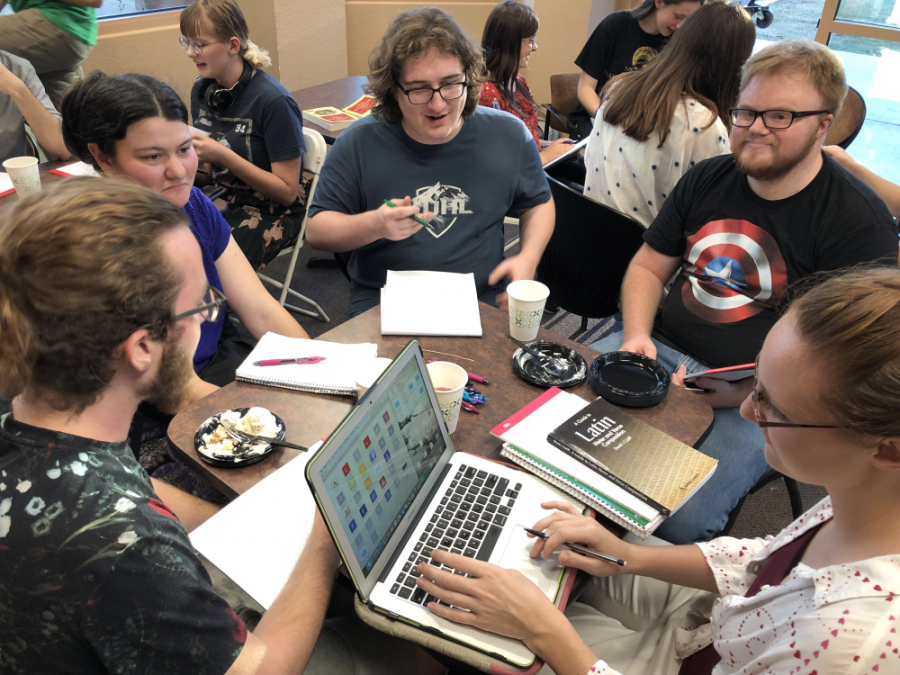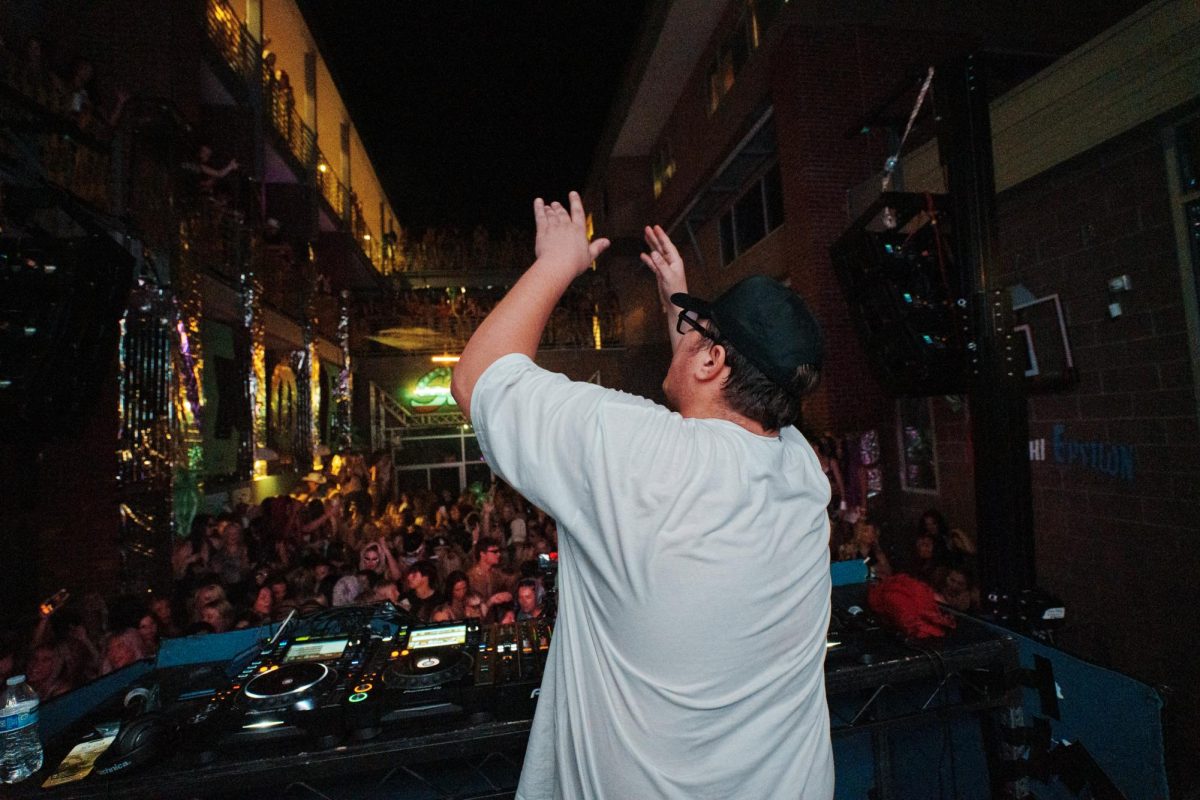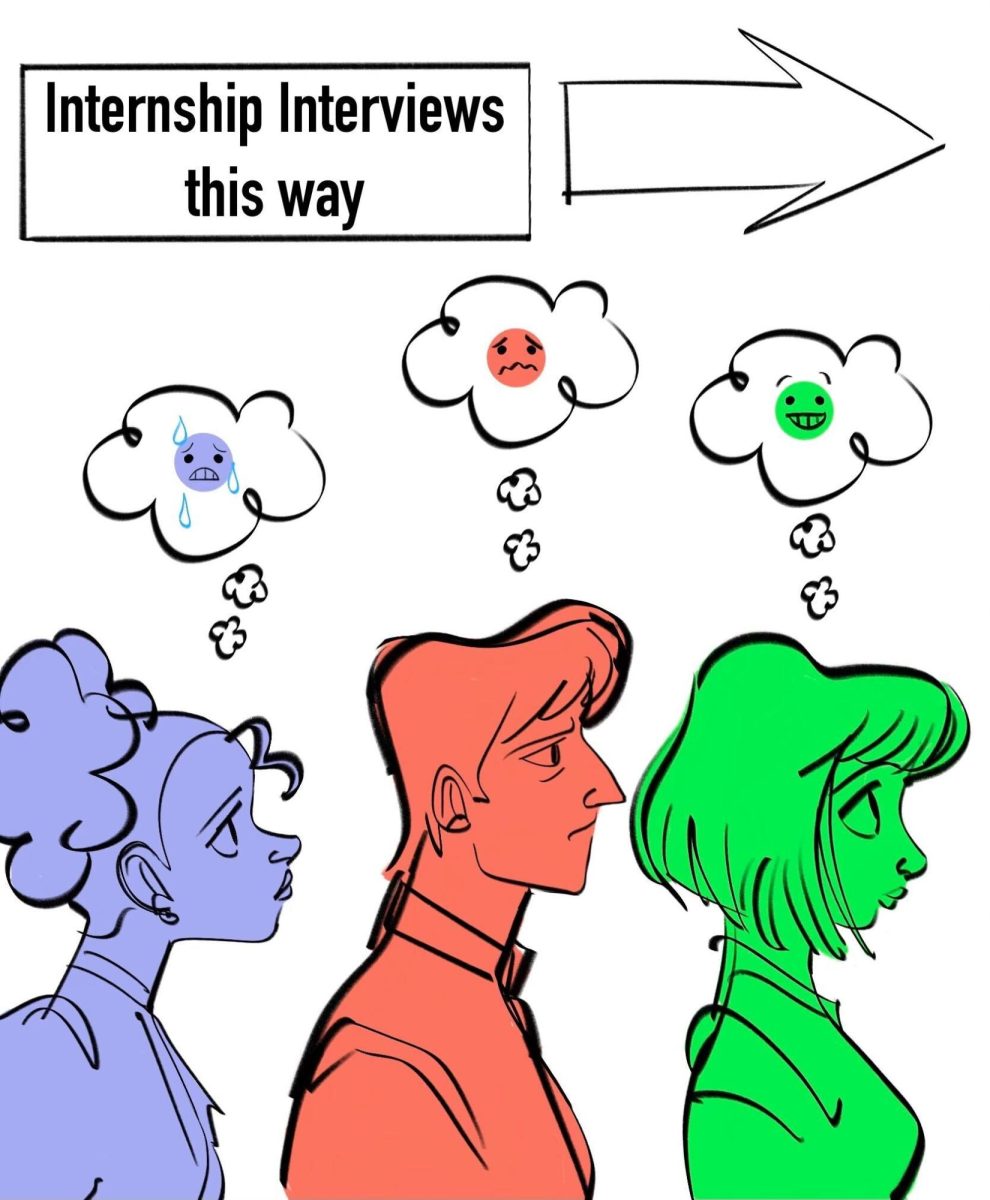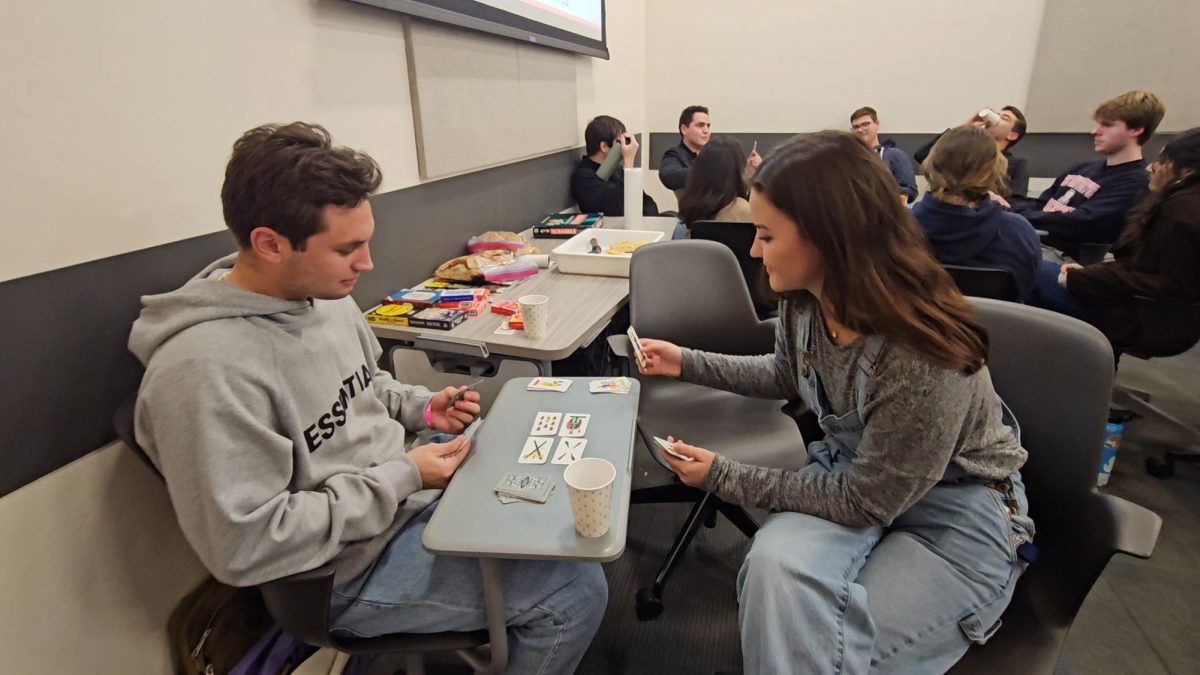Latin is certainly not a dead language on the University of Arizona campus, as students of all skill levels are invited to join the new Composing Latin Poetry club.
According to Sarah McCallum, an Ancient Greek and Latin literature professor in classics who also runs the club, Composing Latin Poetry is for beginning students, advanced students and students in between. By only meeting every two weeks, McCallum hopes to ensure that the club isn’t just another obligation or heavy time commitment.
Last spring, after a discussion with some students and the whimsical purchase of “A Guide to Latin: Meter and Verse Composition” by David J. Califf, McCallum found that there was significant interest in trying to tackle Latin exercises and composing Latin poetry. She then applied for grant funding and the club took off.
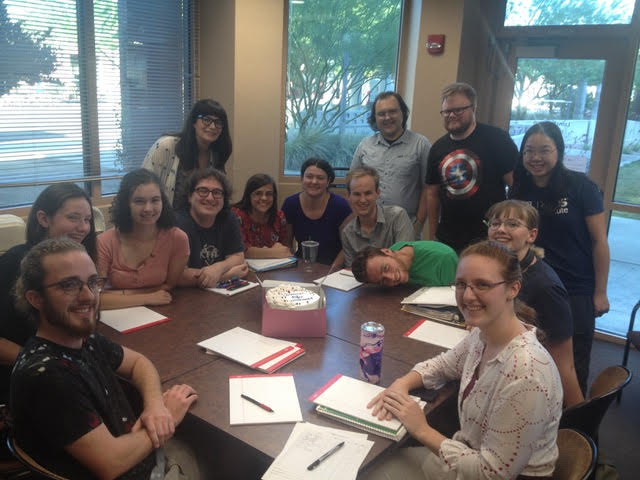
According to McCallum, the club is loosely based on Califf’s book, which includes many activities for students to dabble in composing Latin verse. She also brought books on grammar and verse to the meeting for different experience levels.
“I want it to be the kind of thing where, even if you’re having a busy week, even if there’s a lot going on, you can come and have a piece of cake and work collaboratively with students and faculty who have similar interests and not have to worry about preparing in advance,” McCallum said.
At the first meeting on Sept. 17, the compact room was packed full of eager students buzzing with chatter and excitement.
The counter was lined with refreshments, snacks and even a cake aptly decorated with the Latin phrase, “Vivamus atque scribamus,” which translates to, “Let us live and let us write,” according to McCallum. After cake, the club members introduced themselves and discussed why they chose to spend their Tuesday nights working on Latin poetry.
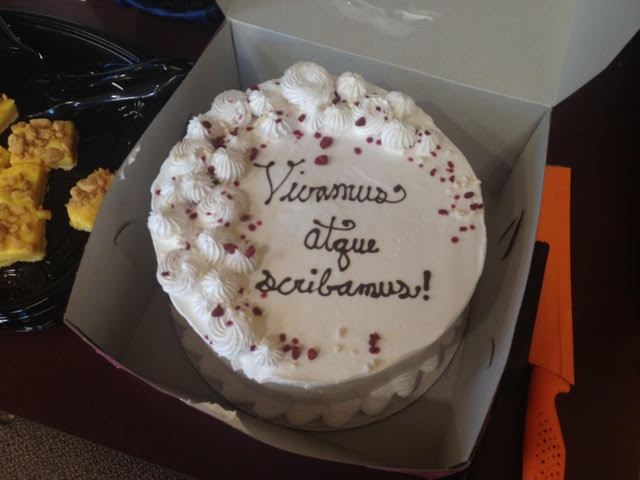
“It’s very creative, it’s very mentally challenging. It’s like putting together a sudoku puzzle or just fitting all these pieces together,” said Elise Larres, a classics graduate student. “It gives you a very great appreciation of the language and what goes into the poetry.”
After introductions, everyone grouped up according to experience level. One group focused directly on translating a poem by J. R. R. Tolkien, another group focused on the scrambles in Califf’s text and McCallum led those with the lowest level of experience in a discussion about the basics of meter.
“It’s just another way to have social interaction that’s not incredibly high stakes in terms of academics,” McCallum said. “It’s an opportunity for anyone that’s taking Latin here at the UA — regardless of where they’re at, what year of the program they’re in — to meet people who are in other places and have had other experiences.”
There is a difference between simply reading Latin and actually attempting to compose verse and speak it, said Jarrett Kunz, a UA undergraduate with majors in classics, economics and political science.
McCallum said composing Latin verse brings about a deep appreciation for what the ancient Romans would do, because it’s a very complicated process to create something beautiful and meaningful in Latin verse.
“When I came to the classics department, we had clubs, but we don’t have as tight knit of a community,” said Marge Stafford, a sophomore studying Russian and classics. “I’m hoping that this club will help foster between different levels of Latin and Greek this sense of camaraderie.”
The club meets every two weeks on Tuesdays from 5-6 p.m. in the Learning Services building.
Follow Mikayla on Twitter



